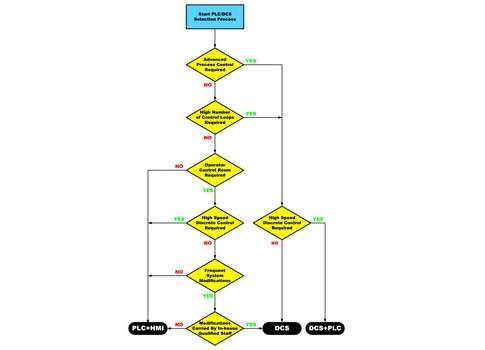Neq Plc If Logic
Programmable logic controllers (PLCs) have become important building blocks for automated systems. Because they have constantly increased in capability while decreasing in cost, PLCs have solidified their position as the device of choice for a wide variety of control tasks. What is a PLC?

Neq Plc If Logic Download
Lab results discussion of the EQU NEQ and MEQ instructions. The Complete PLCLearn series includes all of the lectures that you would receive if you attended the best PLC training and a few unique to our program. The center piece of the series is a collection of three lab project manuals. Together, they provide projects to exercise the entire set of 71 instructions available for use with the demo PLC. We try to include some of the less obvious behavior of these instructions along with the obvious. As a companion to the lab project manuals, commentaries on each lab project are available on YouTube and on disks. The manuals have divided the projects into 'Basics', 'Advanced I' and 'Advanced II'.
An 'Information' disk is available and it contains hardware and software manuals as well as demo software and miscellaneous documents and guides that will assist you on the job.

I am using Wonderware as a SCADA host, and am using messaging to read data from ML1100's to a CompactLogix L30ER.Are you saying that you are trying to have Wonderware read from the Micrologix and write to the CompactLogix? I've seen SCADA's used as cheap protocol converters or network bridges, but why not have the the two PLCs talk directly to each other? Sorry for the misinformation on my end. I will try to explain what I am working with and what I am looking to accomplish.Currently, Wonderware is pointing at several different nodes out in the field that are all communicating via ethernet radio. There is no sequential polling in WW so I am implementing the CompactLogix controller into the system to do the 'heavy lifting' for the system using messaging to communicate from WWCompactLogixML1100 at node and vise versa.Currently, I have written logic for both read/write messages to and from the CompactLogix and each ML1100 and set up the heartbeats.What I want to know is, will this constant writing of values to the controllers be a problem? What I mean by that is say I have a setpoint and I have it set at a certain value, that value will be written each scan from the Master to the remote controller and will never change unless I change the tag value in the HMI.
Is there any issues I'm creating by doing this or is this standard operating procedure for this type of application?I may be overthinking it, thanks for being patient. You can use a comparator to look at what value is in the WW interface and compare it to what's in the compact, or micro. Only activate the move instructions if the input and destination don't match. You basically are creating a one shot for data transfer.You will now only execute a compare and possibly 1 group of moves, instead of x-number of moves every cycle.Not sure if you would run into problems or not even if you stuck to just activating all the moves every cycle. However I also tend to try and make things work more efficiently, so I can understand why you would do it.
We have several dozen ML1400 and 1100 PLCs deployed in a similar topology.Your arrangement works fine as long as all your Setpoints come from the Master only. If you have a local HMI at each remote, that you want to use to change setpoints or toggle bits, And those same setpoints come from the master, then you have an issue.In this scenario i normally give them local and remote setpoints. They have a button to copy remote to local. They can then switch to local control and modify.
If they want to keep those setpoints, they ring up the control room or access the SCADA remotely and i have a button for 'update from local setpoints' for each site. That fires off a read of the local setpoints by the master, which then copies them into it's 'normal'setpoints database.Hope that makes sense! In all the cases I work with using radio telemetry, it is necessary to read and write at least one or two values on every pass.
It also takes very little extra time and effort to just read and write the whole chunk, so I have not done any 'report by exception' yet.If I get into a cell modem based system where data u$age comes into play, I would definitely alter my logic to conserve bits and bytes transmitted, but have not crossed that bridge yet and will probably use MQTT or similar protocols if/when that happens.Also, your wonderware application (using normal data entry objects) is not writing constantly to the PLC tag. It might be reading it quite frequently, but only writes to the tag when the operator actually enters a value.that is unless you are doing some sort of scripting that is out of the ordinary.
